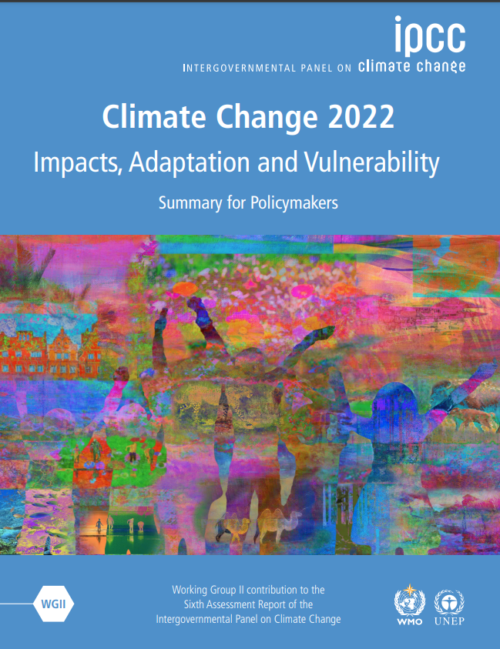Weekend reading: agriculture and climate change
The Intergovernmental Panel on Climate Change (IPCC) has released its 6th report.

The news gets worse with each successive report.
Human-induced climate change is causing dangerous and widespread disruption in nature and affecting the lives of billions of people around the world, despite efforts to reduce the risks. People and ecosystems least able to cope are being hardest hit…The world faces unavoidable multiple climate hazards over the next two decades with global warming of 1.5°C (2.7°F). Even temporarily exceeding this warming level will result in additional severe impacts, some of which will be irreversible. Risks for society will increase, including to infrastructure and low-lying coastal settlements.
One paragraph (C.2.2) deals with the effects of agriculture on climate change, and the strength of the associations.
- Effective adaptation options, together with supportive public policies enhance food availability and stability and reduce climate risk for food systems while increasing their sustainability (medium confidence).
- Effective options include cultivar improvements, agroforestry, community-based adaptation, farm and landscape diversification, and urban agriculture (high confidence).
- Institutional feasibility, adaptation limits of crops and cost effectiveness also influence the effectiveness of the adaptation options (limited evidence, medium agreement).
- Agroecological principles and practices, ecosystem-based management in fisheries and aquaculture, and other approaches that work with natural processes support food security, nutrition, health and well-being, livelihoods and biodiversity, sustainability and ecosystem services (high confidence).
- These services include pest control, pollination, buffering of temperature extremes, and carbon sequestration and storage (high confidence).
- Trade-offs and barriers associated with such approaches include costs of establishment, access to inputs and viable markets, new knowledge and management (high confidence) and their potential effectiveness varies by socioeconomic context, ecosystem zone, species combinations and institutional support (medium confidence).
- Integrated, multi-sectoral solutions that address social inequities and differentiate responses based on climate risk and local situation will enhance food security and nutrition (high confidence).
- Adaptation strategies which reduce food loss and waste or support balanced diets (as described in the IPCC Special Report on Climate Change and Land) contribute to nutrition, health, biodiversity and other environmental benefits (high confidence).
Here are the documents:
The previous IPCC reports
- The Overview of the First Assessment Report (1990)
- The IPCC Second Assessment Report Synthesis of Scientific-technical Information Relevant to Interpreting Article 2 of the UNFCCC (1995)
- The Synthesis Report of the Third Assessment Report (2001)
- The Synthesis Report of the Fourth Assessment Report (2007)
- The Synthesis Report of the Fifth Assessment Report (2014)

